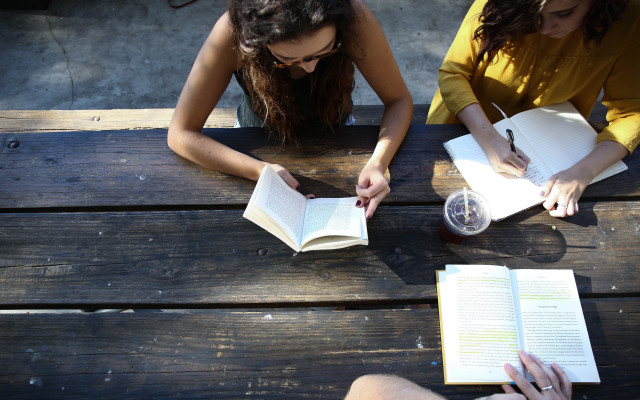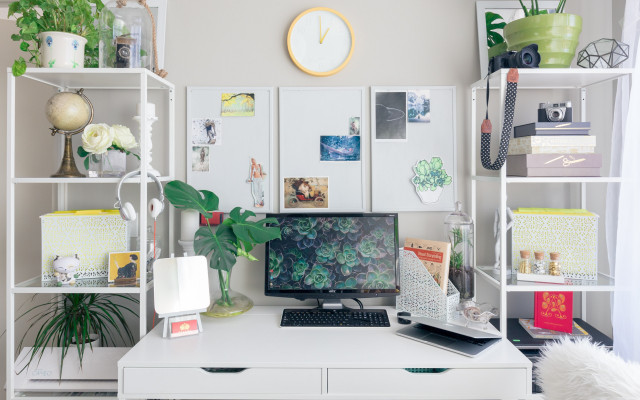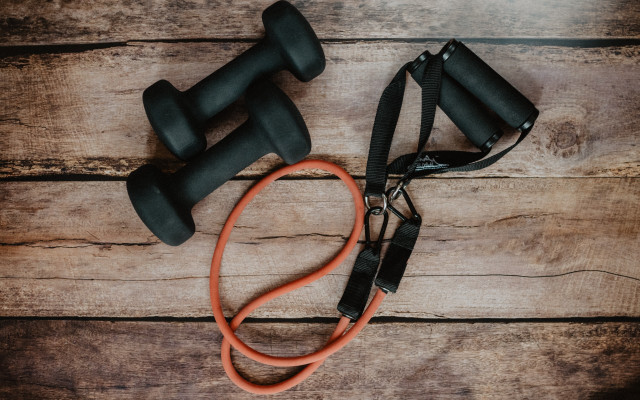
Knowledge that stays in the memory over the long term is the best option when it comes to sustainable learning. We reveal tips and tricks on what and how to learn sustainably and show why the right diet and exercise can also play an important role.
“We learn not for school, for life”, we have all heard this saying before. In fact, lifelong, sustained learning is an important skill that, to put it bluntly, ensures our survival. For example, when we can correctly assess and master a dangerous situation based on experience, or when we keep our brain fit with a new language even in old age. But also at school, during your studies or later during professional and private further training – sustainable learning is part of a fulfilling and healthy life.
Of course, not everything learned is super relevant for our later life. In school and university, the “may” often turns into a “must”. However, it makes little sense to cramme the material in with high pressure shortly before the exam and then forget it immediately afterwards. In this way, the danger of overtaxing oneself and developing a kind of “learning blockade” is great. Sustainable learning, so that the knowledge is remembered in the long term, is the better solution. We have attached tips and also reveal how the right diet and exercise can positively influence sustainable learning.

How does sustainable learning work?
One speaks of sustainable learning when our brain has processed the information and stored it in long-term memory. With every processing process, connections are created between the individual brain cells. The more often we repeat something, the stronger these connections become, until the narrow path between nerve cells has become a “data superhighway”. And the more new knowledge we acquire, the faster our brain is at creating new connections and the better we learn.
Even seemingly meaningless knowledge is therefore not useless. Because even if we never have to solve an equation again after our school career, we have trained our heads and “learned to learn”. This training helps us when we later want to learn something else that we need for work or a hobby, for example.
By the way: if the brain is not exercised, it degenerates like a muscle that is not used. That’s why, even as we get older, we should always be open to learning something new, be it a sport, a language or maybe a musical instrument. Learning is like a fountain of youth that allows us to live longer, healthier and independently.

Which helps with learning
A few factors are decisive for sustainable learning: the individual learner type, the learning environment and the right learning technique.
Learner Type: To learn effectively, you need to find the easiest way to remember things. Are you able to memorize information well when it is presented visually? Do you remember content more easily when it is presented as keywords with explanations or embedded in easy-to-read text? Is there something you remember more easily when you hear it in class or on a podcast? If you know what your brain responds to best, you can prepare the learning material in the appropriate form.
Learning environment: It is easier to learn in the right environment, both temporally and spatially. The environment should be as quiet as possible, free from distractions such as social media, music or noise from outside. Some people can concentrate better at home, others find it easier in a library, for example. A peaceful spot in the park can be just as ideal a place to study as an empty lecture hall – the important thing is that you feel comfortable there.
Learning technique: There are different learning techniques to suit the different types of learners in order to promote sustainable learning. Visually inclined people can, for example, create mind maps or add inner images to the learning material. Some store information fastest in long-term memory when explaining what they just read to someone else. Writing flashcards or summaries is also an efficient way to acquire knowledge.

Sustainable learning needs movement
If you want to learn sustainably, you have to take breaks in between. Stubborn, hour-long cramming is tiring and only leads to us immediately forgetting what we have just read. The brain needs time to process the information it receives and to store it in long-term memory. You should therefore plan a short break every 60 to 90 minutes in which you get up from your seat, stretch and walk a few steps. This stimulates the circulation, supplies the brain cells with fresh oxygen and prevents tension in the back.
However, movement has a fundamentally positive effect on our learning performance. For example, scientific studies have shown that exercise improves our memory. When doing sport, other areas of the brain are used than when learning and the organ is better supplied with blood overall. Anyone who goes for a longer walk or rides a bike after an intensive learning unit is not only doing something good for their health, but also provides a “reset” in the brain and can then concentrate better on the learning material. Programs such as TK-Fit also offer an additional incentive to exercise during stressful learning phases and ensure that we do not forget the important balance.

Healthy sleep and healthy nutrition as a learning aid
Our last tip may seem banal, but sustainable learning requires sufficient healthy sleep and a balanced diet. Of course, when one or more big exams are imminent, one is often nervous and restless, and possibly sleeps poorly. Or you simply don’t sleep enough because you want to spend more time studying. Extending study time at the expense of sleep is a dangerous fallacy, however. Because our brain needs the recovery phases during sleep as well as those during movement in order to be able to process all the information. Only a rested head is able to absorb knowledge and store it in the long term.
The same applies to our diet. The brain needs sufficient energy, as it performs at its best at the time of the exam. It is therefore important to provide the right nutrients, for example in the form of nuts, vegetables, fruit, fish or eggs. But be careful: no heavy meals while studying! If the stomach is too full, the blood supply to the brain is throttled and diverted to the digestive organs. We are less able to concentrate and remember less. Instead of a large meal, it is therefore better to consume many small snacks in the breaks between the learning units and drink a lot (of water).

Sustainable learning needs to be learned
Long-term learning is not witchcraft, but like everything else in life, it needs to be learned. With the right learning technique, a quiet environment and good planning, even stressful exam phases can be mastered easily. If you eat healthily, exercise a lot in the fresh air and make sure you get enough sleep, you will improve your memory even further. This applies not only to pupils and students, but to everyone who understands lifelong learning for what it is: the fountain of youth for our brain.
To the homepage of the TC
You might also be interested in:
- Lifelong learning: That’s why it’s essential
- Learn better with movement
- Online sleep training from TK
- Through self-reflection to more self-confidence and mental health
You might also be interested in these articles
-
Live consciously: The most important questions we should ask ourselves in everyday life
-
Sexually Transmitted Diseases – we should talk about them
-
Helper Syndrome: 5 Signs You Might Have It
-
Meditation to fall asleep: How it works
-
Migraines: Much more than just headaches
-
Remove tartar yourself: methods and possible risks
-
Can you plan happiness? Tips from happiness research, philosophy & Co.
-
Strengthening the immune system: How to arm yourself against viruses this winter
-
Your sustainably relaxed holiday with these 7 travel hacks